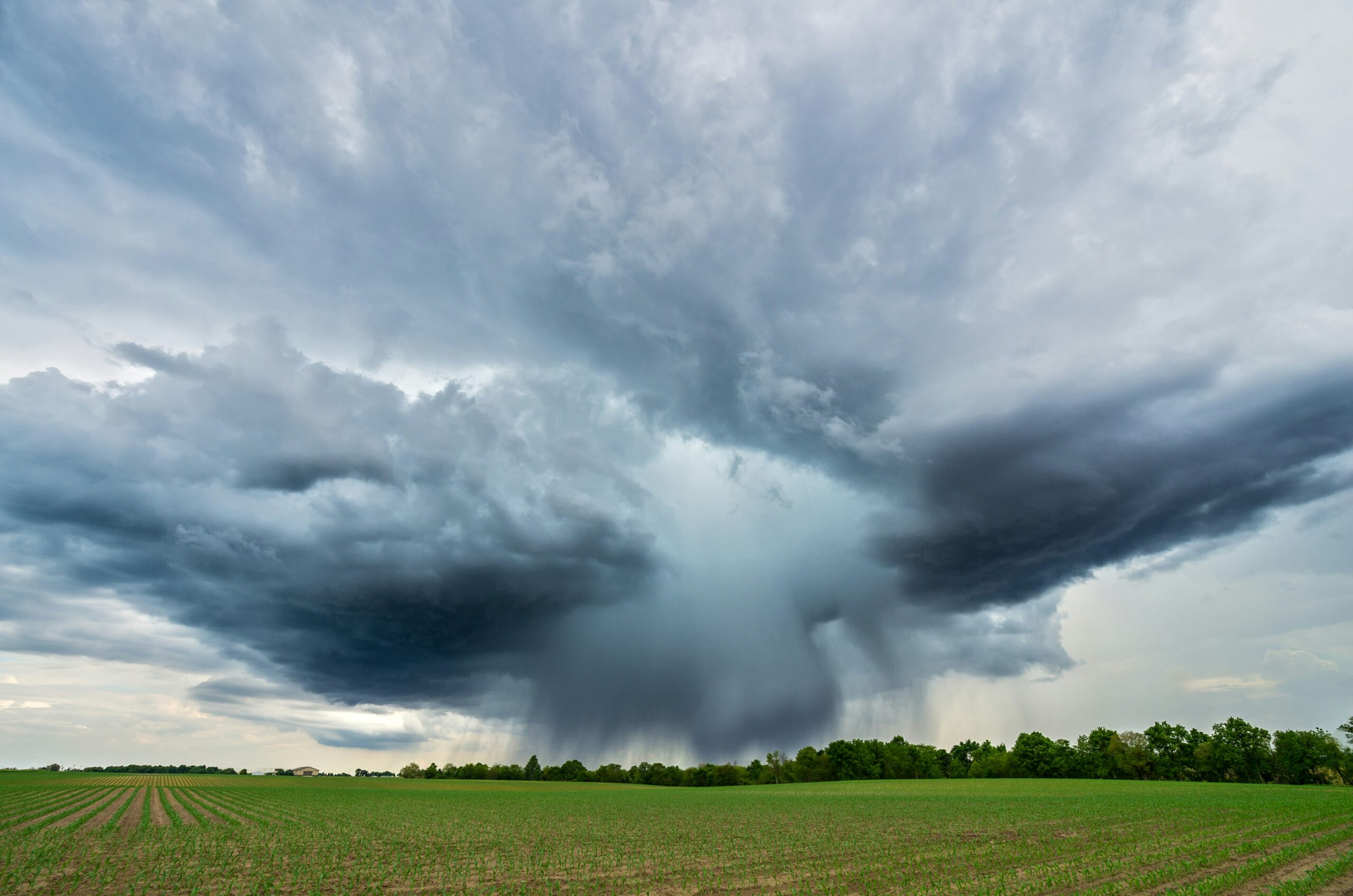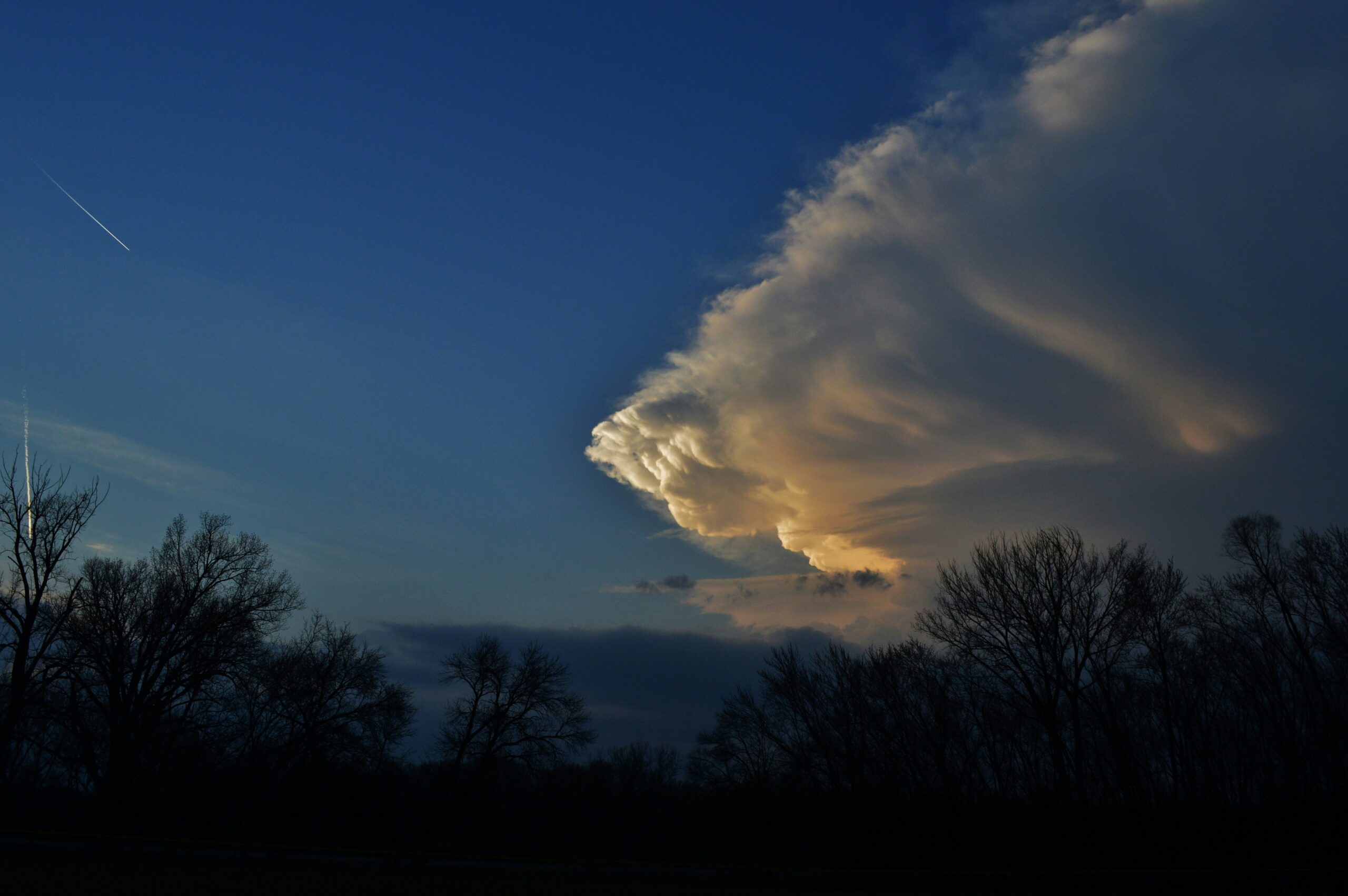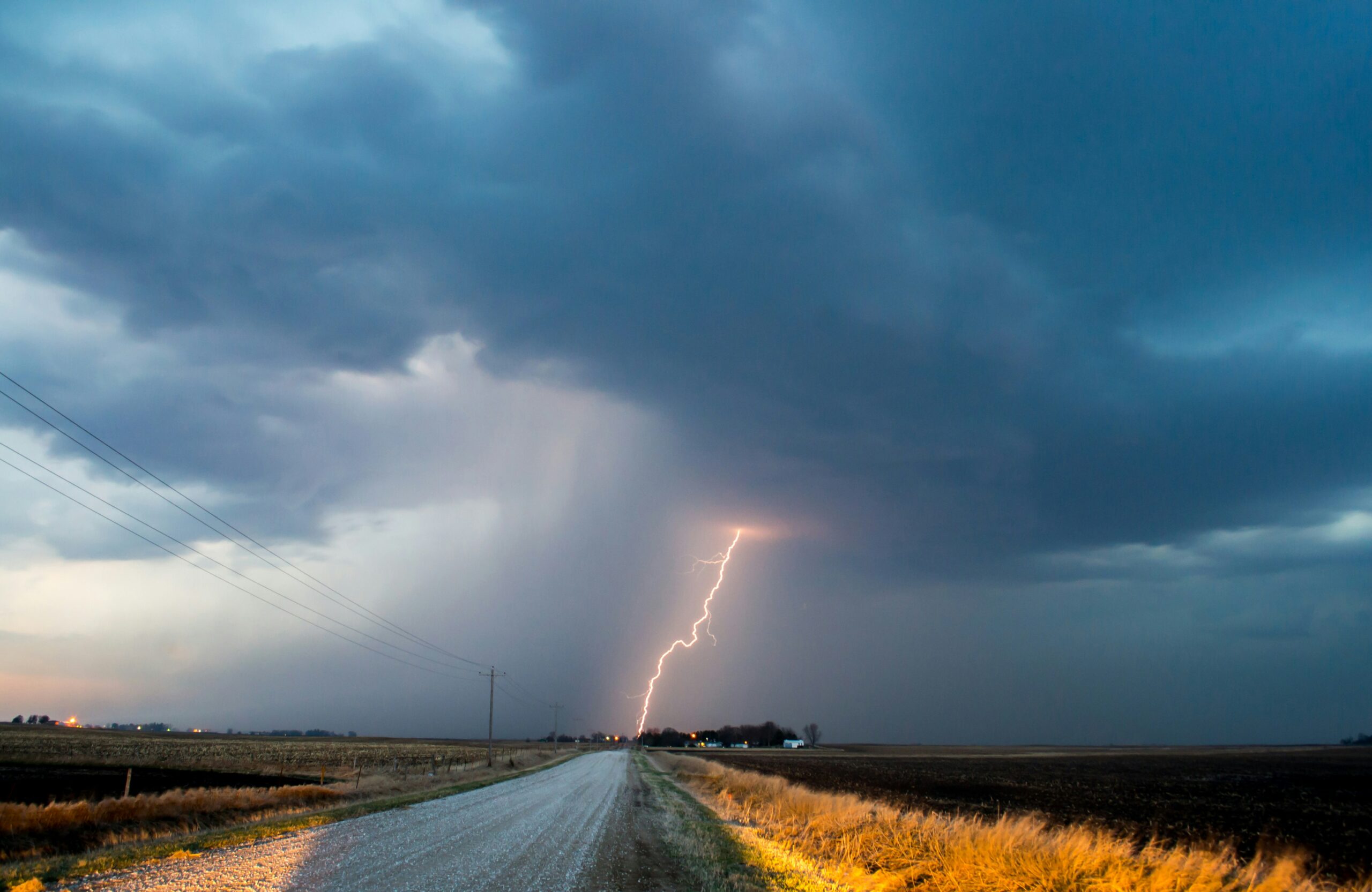When a hurricane watch advisory alert is issued, it’s important to be prepared and take the necessary precautions to ensure your safety. With potential dangers such as strong winds, heavy rainfall, and potential flooding, being ready beforehand can make a significant difference. By stocking up on essential supplies, securing your home, and staying informed about the situation, you can be better equipped to face the challenges that may come with a hurricane watch advisory alert.
Understanding a Hurricane Watch
Definition of a hurricane watch
A hurricane watch is a weather advisory issued by the National Weather Service (NWS) to alert the public that there is a possibility of a hurricane affecting a specific coastal area within the next 48 hours. It indicates that hurricane conditions, including sustained winds of at least 74 miles per hour, are potentially expected in the designated area. It serves as a warning for residents to start preparing for a potential hurricane and to closely monitor the situation for any updates.
How hurricane watch is different from a hurricane warning
While a hurricane watch and a hurricane warning may seem similar, there is a crucial difference between the two. A hurricane watch is an alert that is issued when there is a possibility of a hurricane affecting a particular area within the next 48 hours. On the other hand, a hurricane warning is issued when a hurricane is expected to make landfall within the next 36 hours. In simpler terms, a hurricane watch means to be prepared, while a hurricane warning means to take immediate action as the hurricane is imminent.
Sources to get updated information
To stay informed about the progress of a hurricane watch, it is essential to rely on credible sources of information. The NWS is the primary authority that issues hurricane watches and warnings, so regularly checking their official website (www.weather.gov) is a must. Local meteorological agencies also provide frequent updates and specific information about your area. Additionally, tuning in to local news channels and radio stations can serve as valuable sources for the latest developments regarding the hurricane watch. Social media platforms can also provide valuable real-time updates, but it’s important to verify the information from reliable sources before acting on it.
Gathering Emergency Supplies
Creation of an emergency kit
Preparing an emergency kit is crucial to ensure you have essential supplies during a hurricane watch. Start by gathering a sturdy, waterproof container to store your emergency supplies. This container should be easily accessible and known to all household members. Label it clearly as your “Emergency Kit” for easy identification.
Essential items to include in the kit
Your emergency kit should contain items that can sustain you and your family for at least three days. Some essential items to include are non-perishable food items, such as canned goods and protein bars, plenty of drinking water, a manual can opener, a first aid kit, prescription medications, batteries, flashlights, a portable radio, extra clothes and blankets, personal hygiene items, and a basic tool kit.
Points to consider while choosing items
When selecting items for your emergency kit, consider the specific needs and requirements of your household. For example, if you have infants or young children, include formula, diapers, and other necessary baby supplies. If any member of your family has specific medical conditions or requires special medications, ensure you have an adequate supply of these items in your kit. It’s also essential to periodically check and replenish your emergency kit to ensure that all items are in good condition and within their expiration dates.

Preparing Your Home For a Hurricane
Securing windows and doors
Securing windows and doors is crucial to protect your home from the strong winds associated with hurricanes. Consider installing storm shutters or plywood for an extra layer of protection. Ensure that all windows and doors are properly sealed, and repair any damaged or loose parts. Reinforce your entry doors with deadbolts or impact-resistant doors, if possible. Taking these measures will minimize the risk of severe damages to your home and help keep you safe during a hurricane watch.
Checking and preparing the roof
The roof is one of the most vulnerable areas of a house during a hurricane. Carefully inspect your roof for any loose or missing shingles, damaged flashing, or weakened areas. Make necessary repairs or seek professional assistance to ensure its structural integrity. Additionally, consider securing any loose objects on your roof, such as antennas or satellite dishes, to prevent them from becoming dangerous projectiles in high winds.
Moving outdoor furniture inside
During a hurricane watch, it’s crucial to remove or secure any outdoor furniture, decorations, or other loose objects that could become airborne during strong winds. Move these items indoors, preferably to a basement or a room away from windows. Alternatively, secure them with heavy-duty straps or tie them down to prevent them from causing damage to your property or nearby structures.
Preparing for possible flooding
Flooding is a common occurrence during hurricanes, especially if you live in a coastal area or near bodies of water. Take proactive measures to protect your home by elevating valuable belongings and electrical appliances to higher levels if you have a multi-story house. Additionally, consider installing flood barriers or sandbags around vulnerable areas, such as doors and windows, to minimize water infiltration. Ensure that your sump pump is in good working condition and that gutters and downspouts are clear of debris to facilitate proper water drainage.
Evacuation Planning
Creation of an evacuation plan
It is prudent to have an evacuation plan ready in case the hurricane watch escalates to a hurricane warning, or if you live in an area prone to storm surges or mandatory evacuations. Your evacuation plan should include designated meeting points, a predetermined route to a safe location, and contact information for emergency services and shelters. Share this plan with all family members and ensure everyone understands their roles and responsibilities during an evacuation.
Testing the evacuation route
Before a hurricane watch is upgraded to a hurricane warning, it’s crucial to test your evacuation route to ensure it is accessible and familiar to you and your family. Consider alternate routes in case of road closures or congestion. Take note of potential obstacles or hazards along the way, such as low-lying areas prone to flooding. Familiarize yourself with evacuation routes and pay attention to signs or instructions provided by local authorities during an evacuation.
Items to take during evacuation
When the need to evacuate arises, it is essential to bring important items with you. Some items to consider are identification documents, cash and credit cards, cell phones and chargers, a copy of your emergency plan, a first aid kit, prescription medications, a change of clothing, blankets or sleeping bags, personal hygiene items, any necessary baby supplies, and pet supplies if applicable. It’s advisable to pack these items in a waterproof bag or container for added protection.
Planning for pets and animals
If you have pets or animals, ensure that your evacuation plan includes provisions for their safety and well-being. Identify pet-friendly hotels or shelters along your evacuation route or make alternative arrangements with friends or family members who can accommodate your pets. Pack necessary items for your pets, such as food, water, medications, leashes, carriers or crates, and comfort items. Keep their identification tags updated and have copies of their vaccination records readily available.
Needing special assistance or having specific medical needs
If you or a family member requires special assistance or has specific medical needs, it is crucial to plan accordingly during a hurricane watch. Register with local authorities or medical agencies to inform them of your situation and receive guidance. Ensure that you have an ample supply of necessary medications and medical equipment, and make arrangements for any required medical transportation or assistance if an evacuation becomes necessary.

Communication Plan
Establishing a family communication plan
During a hurricane watch, it is vital to establish a family communication plan to stay connected and informed. Designate a central contact person outside the affected area who can serve as a point of communication for all family members. Share contact information with everyone in the family and ensure that everyone knows how to reach the designated contact person. Establish regular check-in times to update each other on safety and whereabouts.
Alternative communication methods
In the event of power outages or disrupted phone services, it is essential to have alternative communication methods. Consider using text messages as they can often be more reliable during emergencies. Additionally, invest in a battery-powered or hand-crank radio to stay updated with emergency broadcasts. Familiarize yourself with any local emergency radio frequencies or channels that may be used in your area during a hurricane watch.
Charging backup power sources
Before the hurricane watch is upgraded to a hurricane warning, make sure to charge all essential backup power sources. This includes power banks, spare batteries for mobile devices, and any other portable charging solutions you may have. Keeping these devices fully charged will ensure that you have access to communication tools, such as cell phones and radios, even in the event of a power outage.
Document Safety
Creating digital copies of important documents
A crucial aspect of hurricane preparedness is protecting important documents. Create digital copies of important documents, such as identification papers, insurance policies, and property deeds, and store them securely on a password-protected, cloud-based storage platform. This will ensure that you have access to these documents in case the original copies are lost or damaged during a hurricane.
Storing documents in a safe place
In addition to digital backups, it’s important to store physical copies of important documents in a secure, waterproof container. Place the container in a location that is unlikely to be affected by flooding or other damage. Consider using a safe deposit box at a bank or a fireproof safe in your home as an added layer of protection.
Documents to include in your digital backup
When creating your digital backup, include copies of personal identification (such as passports and driver’s licenses), insurance policies, birth and marriage certificates, property deeds, wills, social security cards, and any other documents that are difficult or time-consuming to replace. It’s also advisable to have a handwritten emergency contact list in case digital devices are not accessible.

Insurance Review
Reviewing your insurance policy
Before a hurricane watch is issued, it is essential to review your insurance policy to understand the coverage it provides for hurricane-related damages. Take note of any deductibles, exclusions, or limitations that may apply to specific types of damage. Knowing your policy’s details will help you make informed decisions regarding additional insurance coverage if needed.
Understanding what is and isn’t covered
Make sure you understand what is and what isn’t covered by your insurance policy in the context of hurricanes. While damage caused by wind and rain may be covered, flood damage is typically not included in standard homeowners’ insurance policies. Consider purchasing separate flood insurance to protect yourself from the financial repercussions of flood-related damages.
Considering additional insurance for flooding
If you live in an area prone to flooding, it is highly recommended to consider purchasing flood insurance even if it is not required by your mortgage lender. Flood damage can be devastating, and standard homeowners’ insurance does not usually cover it. Contact your insurance provider or the National Flood Insurance Program (NFIP) to explore your options and ensure that you have adequate coverage.
Preparing Your Vehicle
Checking vehicle’s condition
When preparing for a hurricane watch, it is important to ensure that your vehicle is in good working condition. Check the tires, brakes, engine fluids, and battery to ensure they are functioning properly. If necessary, schedule a maintenance appointment with a trusted mechanic to address any issues that may compromise your vehicle’s reliability during an evacuation.
Keeping the gas tank full
Maintaining a full gas tank is essential during a hurricane watch. In the event of an evacuation, long-distance travel or traffic congestion may be unavoidable. Having a full tank of gas will help you better navigate through such situations without the additional stress of finding a gas station or running out of fuel.
Packing essential items and documents in your vehicle
Prepare a vehicle emergency kit that includes basic tools, a spare tire, jumper cables, a flashlight, extra batteries, a first aid kit, blankets, a roadside emergency warning triangle, and a fully charged cellphone. Additionally, keep copies of important documents, such as identification papers and insurance policies, in a waterproof bag or container in your vehicle. These precautions will ensure that you have essential items and documents readily available in case of an emergency.
Community Response Plan
Understanding your community’s hurricane response plan
Familiarize yourself with your community’s hurricane response plan before a hurricane watch is issued. Local authorities often provide information on evacuation zones, emergency shelter locations, and procedures to follow during a hurricane. Being aware of these details in advance will enable you to make informed decisions and respond effectively to any directives issued by local authorities.
Knowing your area’s evacuation routes and locations of emergency shelters
Knowing the evacuation routes and the locations of emergency shelters in your area is vital. Identify the safest and shortest routes to the nearest evacuation shelters and become familiar with these routes and any critical landmarks along the way. Doing so will allow you to navigate efficiently during an evacuation and ensure the safety of yourself and your loved ones.
Post-Hurricane Safety Tips
Staying informed and being cautious of dangers
Even after the hurricane has passed and the hurricane watch is lifted, it is crucial to stay informed about local conditions and any ongoing dangers. Pay attention to local news broadcasts, official announcements, and alerts to stay updated on post-hurricane situations such as power outages, road closures, and potential health and safety hazards in your area. Always exercise caution and follow any instructions or advisories issued by local authorities.
Not driving or walking through flood waters
One of the most significant dangers during and after a hurricane is flooding. Never attempt to drive or walk through floodwaters, as they can be deceptively powerful and potentially contain hidden hazards such as downed power lines or submerged objects. Even shallow water can sweep away a vehicle or cause injuries. Always heed official warnings and avoid flooded areas until it is confirmed safe to do so.
Monitoring food and water safety
In the aftermath of a hurricane, it is crucial to prioritize food and water safety. Discard any perishable food that may have been contaminated due to power outages or floodwaters. It’s advisable to have a supply of bottled water or purification methods in case the regular water supply is compromised. Follow guidelines from health authorities regarding the safety and sanitation of water and food sources to prevent illnesses.
In conclusion, being prepared for a hurricane watch is essential for the safety and well-being of yourself, your family, and your property. Understanding the significance of a hurricane watch, gathering emergency supplies, preparing your home, having an evacuation plan, establishing a communication plan, ensuring the safety of important documents, reviewing insurance policies, preparing your vehicle, familiarizing yourself with the community’s response plan, and staying vigilant after the hurricane are all vital steps to minimize the impact of a hurricane and ensure everyone’s safety. By taking these precautions and being proactive, you can navigate through a hurricane watch with confidence and peace of mind.

